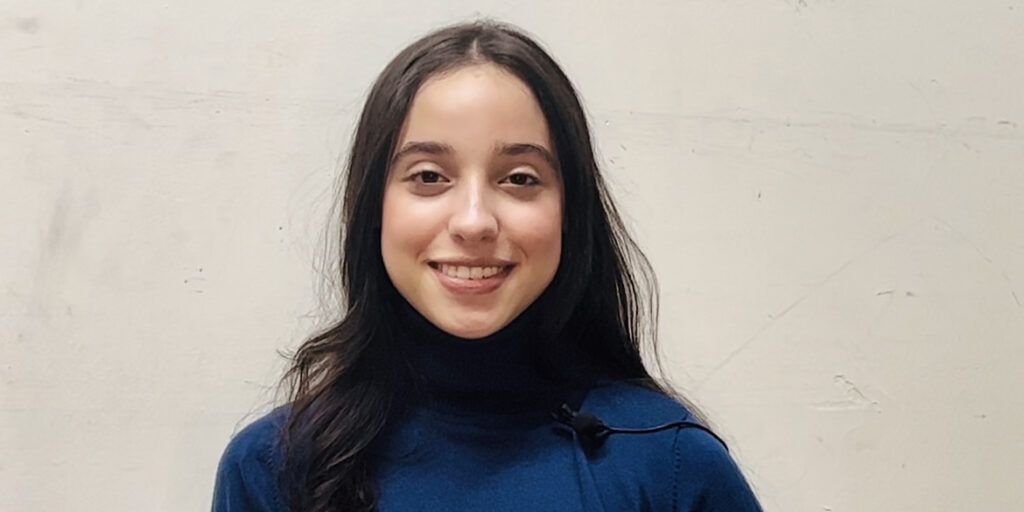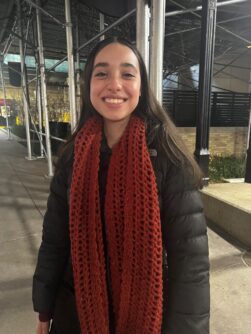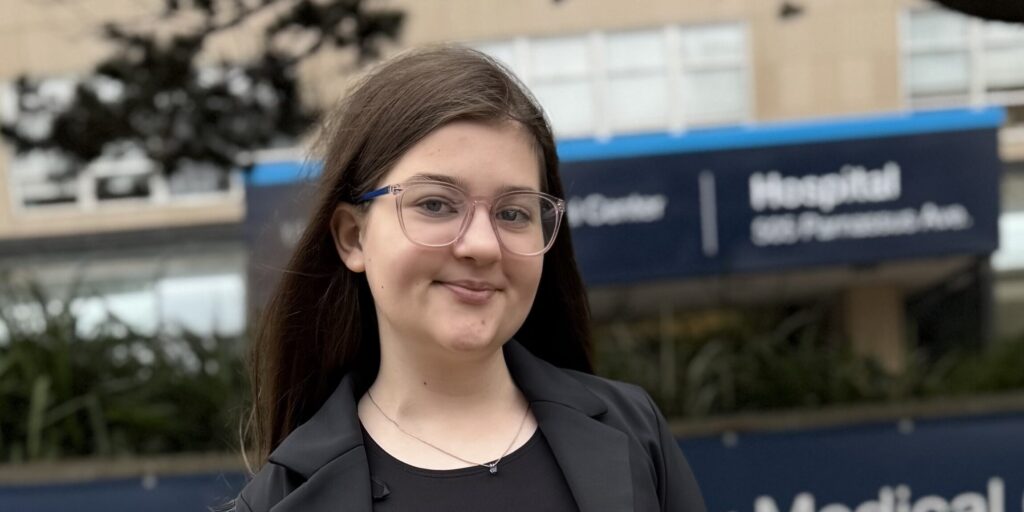
MDA National Ambassador Blog-Letters From Leah: What I’d Like Parents to Know About Being a Teenager with a Disability
By Leah Z. | Friday, February 24, 2023
5 Second Summary
MDA Ambassadors play an essential role in furthering MDA’s mission while representing and empowering the neuromuscular disease community. Quest Ambassador Guest Blog series provides a platform to share their personal stories, perspectives, and experience.

Leah is an MDA National Ambassador who lives with a rare form of neuromuscular disease.
Dear Parents,
Hi, my name is Leah and I am 15 years old. I live with a rare form of neuromuscular disease. Living with this condition affects my muscles and nerves. It is a progressive condition that causes my muscles to atrophy. I wear long bilateral leg braces to ambulate and use a manual wheelchair for long distance traveling. There is currently no cure or treatment available for my condition. I attended an MDA Care Center, where I am being closely monitored by specialists such as: a neurologist, physical therapists, occupational therapists, and a geneticist.
Growing up with Muscular Dystrophy, I have had to face a lot of boundaries. Human stares were one of the most difficult things for me to overcome. Since I wear bilateral braces, it is hard for me to go up and down stairs, jump, and run. I was very shy about my condition. Other kids would stare and often ask me, “Did you break your legs?” or “Why are you wearing those things on your legs?” What kid wants to be asked those kind of questions? Gratefully, my parents taught me at an early age to be independent, to be persistent in what I wanted, not to be ashamed of the way I was created, to make friends, and to continue to wear shorts at the playground. 🙂
I learned a lot from those younger years of my life. I learned the importance of having confidence in myself, to accept myself, and not to care about what others think so much. When you have confidence in yourself others will stop asking those questions, maybe even stop staring, and actually see that this person is more than just their condition. That is why it is important to encourage your children at a young age – to teach them to be independent, to love themselves the way they are made, and more importantly to encourage others who might be going through the same thing.
Have you ever driven by a Town where all the homes look identical? Same cars? Similar landscaping? Well, wouldn’t it be boring if everyone looked the same, walked the same, dressed the same, etc? We are all born differently. Our uniqueness is what makes us interesting. We must learn to live and strive in all situations, including the difficult ones. Remember, we all have a place in this world!
It is important if you have a child with neuromuscular disease to seek a diagnosis, go to MDA Care Centers where the specialists are experts in their condition, and have them make all kinds of friends, including encouraging them to attend MDA summer camp where they will meet and make friends with other kids living with a neuromuscular disease. Be a part of their lives. Do not be shy to speak up and make the best decision for your child’s sake. Sit in their PT and OT sessions. Learn their conditions so that you could empower them as they grow. Advocate for them in every way whether it is in a doctor’s visit or in Washington DC to share your stories with people who make laws that can benefit our lives. Do not focus so much on what they cannot do, but rather, applaud even the little things they can do.
Enjoy being a parent of a wonderful human being. 🙂
Love,
Leah 🙂
Next Steps and Useful Resources
- Learn more about Leah’s Quest for Success and her role as an MDA Ambassador.
- Stay up to date on all of Quest’s content by subscribing to Quest Magazine and Newsletter: https://www.mda.org/quest/subscribe.
Disclaimer: No content on this site should ever be used as a substitute for direct medical advice from your doctor or other qualified clinician.




